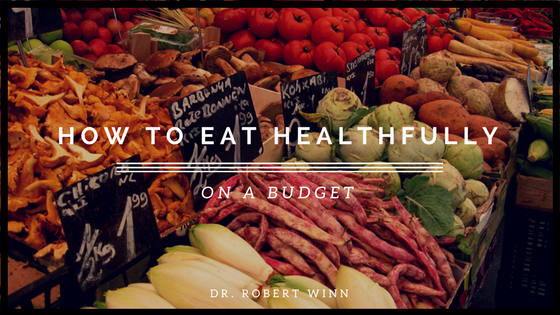You want to eat healthfully. You’ve promised yourself, and this time you intend to keep your word – so you head off to the grocery store with a determined gleam in your eye. You stride down the health food aisle and stop in front of an organic freezer dinner. You open the refrigerator door – and promptly close it again after noticing the price. Deflated, you head back to the section of the store you know best: the pasta aisle.
Eating healthfully doesn’t have to break the bank. In fact, when you compare the costs, the idea that fresh whole foods cost significantly more than a few cartons of junk food falls flat. However, a study conducted by marketing researchers at Ohio State University found that given little information about an item’s actual nutrition, shoppers tend to assume that higher-priced food items are healthier than those with lower prices.
This is a misconception. Given proper planning and thought, a cartload of healthy groceries costs the same – if not less! – than bags of unhealthy food. Here are a few handy tips to stay frugal and well!
Plan ahead
Wandering aimlessly down the grocery aisles and periodically snagging interesting-looking boxes isn’t the way to stay healthy and on-budget. As I’ve mentioned in previous posts, packaging can be deceiving; boxes proclaiming their products as “all-natural” may be little better than a package of unnaturally colored snacks, and are likely expensive to boot. Come up with a meal plan that relies on whole rather than processed foods and commit to spending a few hours prepping. It may take extra time and effort, but you’ll save money and be left with less waste at the end of the week.
If you don’t want to come up with your own plans, consider searching online for existing menus and shopping lists!
Write down your grocery list
Having a plan is helpful – but having a written plan is even better. Bringing a grocery list to the store will ensure that you both remember necessary ingredients and stay away from pricey impulse purchases. There are also plenty of apps for your smartphone for this purpose, or you simply use the built-in “notes” feature for this purpose.
Stick with in-season produce.
Imported off-season fruit is expensive; but in-season, locally sourced fruit can be found at a bargain! Look up which fruits are available in your area before you shop, and consider heading to a nearby farmer’s market to save even more. So many people love in season berries – they taste great in protein smoothies – but they are often expensive. Look for sales toward the end of the season, and take the time to freeze individual portions for later use. Berries freeze well, giving you the chance to savor them out-of-season!
Split the cost of a Costco membership with your friends.
Bulk stores such as Costco, BJ’s, and Sam’s Club are great sources for thrifty shoppers; you can buy large quantities of dry or canned goods at reasonable prices. Buying a ten-pound bag of rice might seem excessive, but two five-pound bags at the grocery store add up to far more than the price of the single bulk bag! Just make sure that if you will be able to use or freeze the perishables you purchase – nothing is more expensive than the food we buy and then throw away.
Stay away from the frozen food aisle
As the person in the opening scenario discovered, frozen food is usually exhorbitantly priced. Try making your own chicken nuggets or hot pockets from scratch! The cost of ingredients comes out to be cheaper than that of a processed box. Once you try the homemade version, it’s hard to go back to store-bought! Plus, you can make, portion, and freeze large batches for quick meals on busy nights. The one exception to this rule are bags of frozen fruits and vegetables. Having frozen broccoli on-hand for a quick side dish is easy, cheap and just as healthy as preparing fresh produce.
Look for deals and coupons
Coupons and deals add up. Take the time to snip coupons out of your local paper, and look around for sales before you check out. A little strategy could save you tens of dollars!
Don’t shop when you’re hungry!
We often don’t think about this before heading out to the grocery store. However, if you are hungry while shopping you are much more likely to pick up items that you don’t need or wouldn’t normally buy.

